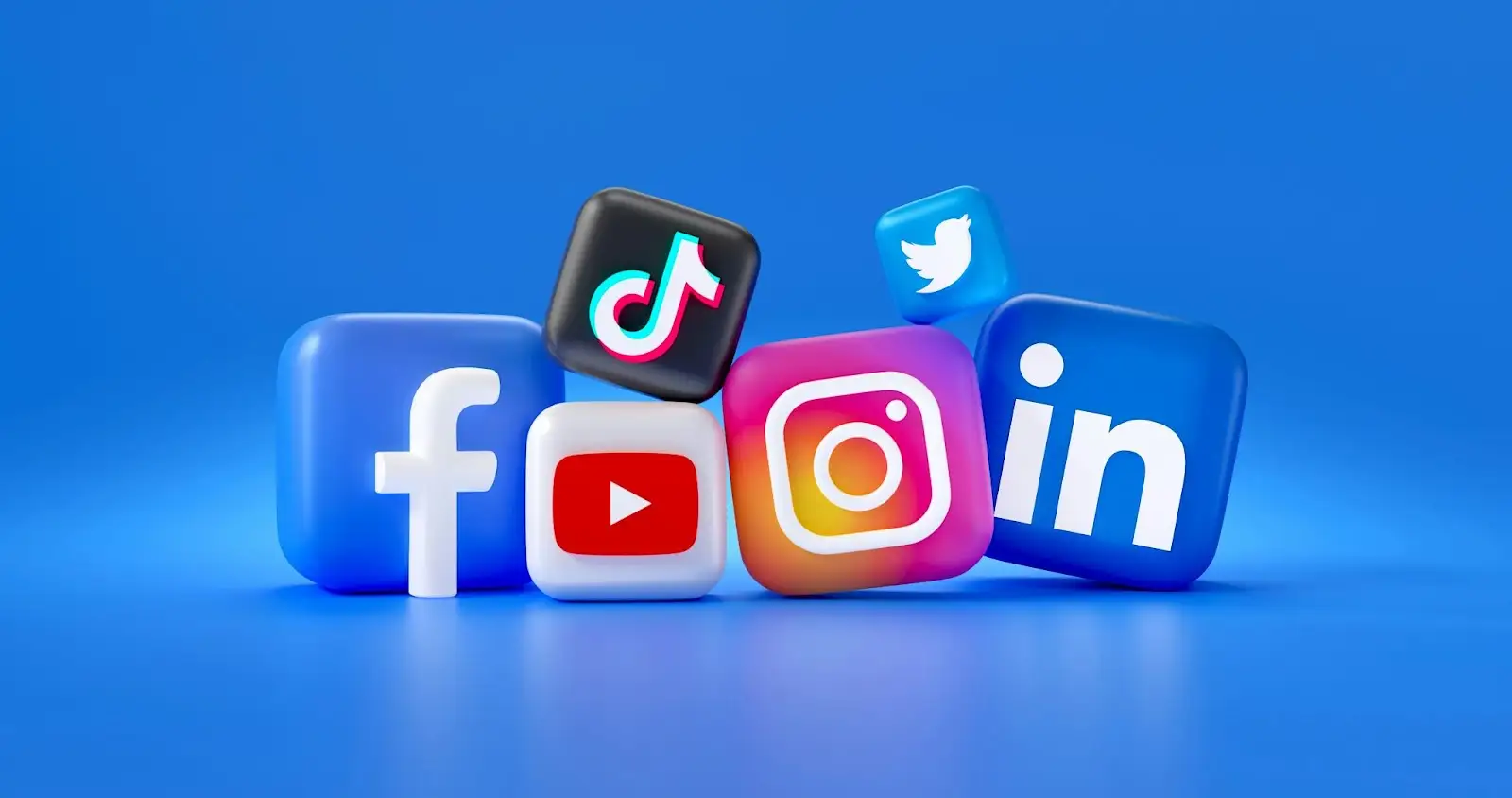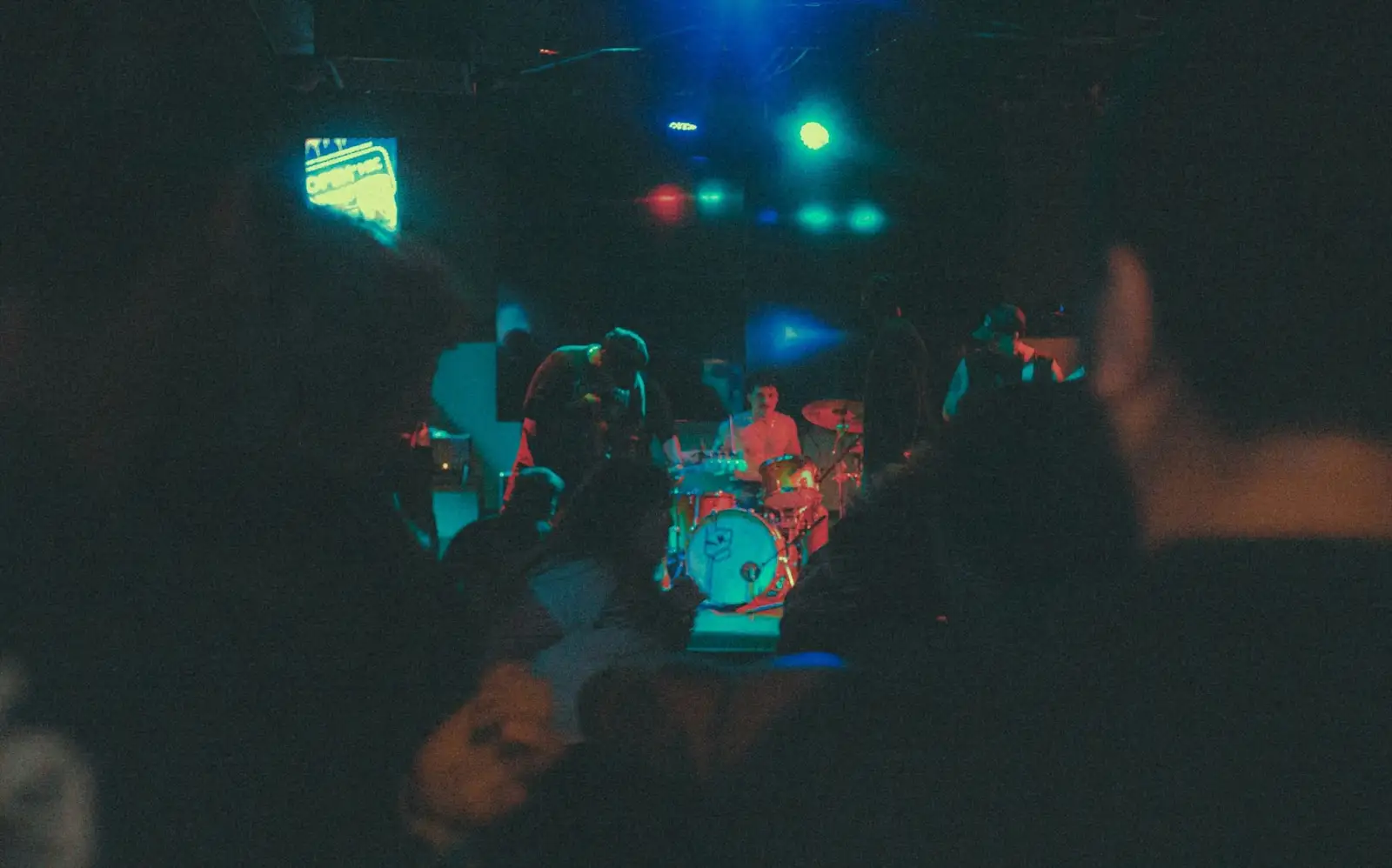Networking. Just the word alone can cause a cold sweat - cue visions of events full of power suits and overly-firm handshakes.
But networking isn't the sole domain of slick salespeople. It's essential if you want to succeed in the music industry.
The old adage 'it's who you know, not what you know' still holds weight, and once you learn how to network in the music industry the right way, you'll discover that it's not intimidating; it can, in fact, be (gasp! ) fun.
This guide will show you why networking matters, and offer practical music industry networking tips for connecting both online and in real life. We'll also cover networking etiquette, and how to build authentic relationships as part of your everyday life.
But first, why even bother?
Why Networking is Important in the Music Industry
Many of us dream of quietly writing music in our creative bubble while the world takes notice. But in reality, no music career is built - or sustained - alone.
That's why networking is important - it helps you make the connections you need to move forward.
Build Your Team
As your career grows, so will your need for collaborators - graphic designers, publicists, photographers - the list goes on.
Networking will help you find your tribe before you need them.
Build a Community
Talking to other musicians in your field can help you stay grounded, learn from others, and share support during the inevitable ups and downs.
Open Doors
As more people know about you and your work, it will be more likely for new opportunities to come your way, whether it's a gig, a sync placement , or an in-person connection.
OK, so we get that networking is important. Let's look at tips and strategies for doing it successfully.
How to Network in the Music Industry
Part 1: Tips for Online Networking

Social media has made it easier than ever to connect with other musicians and industry professionals. Here's how to build relationships and network online successfully:
1. Use Social Media Strategically
Rather than plaster your content on every social media platform, choose the two or three that you feel most comfortable using, and where your target audience hang out .
- LinkedIn can be a great way to connect with music industry professionals.
- TikTok can be ideal for reaching listeners and showing off your process.
- Instagram is a good platform for visual content - ideal if you score films and are looking for filmmakers.
Whichever platform(s) you use, remember engagement is key. Comment (thoughtfully) on posts, like, and share.
2. Join Online Communities and Forums
There's a group for every niche in the music industry - from Reddit threads for bedroom producers, to Facebook groups for filmmakers seeking composers, to Discord servers packed with game devs.
There's also groups for independent artists like yourself, where you can meet new people, get involved in music related discussions, and generally stay up to date with what's happening in your particular area of the music industry.
Be active, not a lurker, and remember - manners matter! Keep things polite and respectful. If other people's opinions get on your nerves, just walk away from the conversation. You want your online profile to come across in a positive way.
3. Follow Up and Stay in Touch
We'll talk more about following up and how to keep track of things later. For now, remember that social media works in both directions; don't just post your latest work and vanish!
If someone posts about a project, show some love. Even if it's not a mutually beneficial relationship, they'll remember you for being interested in their career - and staying top of mind is what will ultimately help you in your music career.
Part 2: Networking Tips for Industry Events

While social media is great for being able to network in your jim-jams, making new connections in person is a stronger way to build relationships and make meaningful connections in the music business.
In-person networking events don't have to be an awkward experience; the most important thing to remember is that everyone is there for the same purpose - to make connections! The more you attend industry events the more comfortable you'll be approaching strangers.
4. Do Your Homework
Before going to events be sure to research attendees if you can. Once you know who the other attendees are, figure out your game plan to focus your time in a strategic way. Do you want to meet potential collaborators, or make a new contact to help further your music career? How many new connections do you want to make?
Bonus Tip: Want to connect with someone specific? Reach out beforehand with a polite email to set up a quick coffee away from the melee of the conference hall.
5. Be Prepared
It's not enough to simply turn up at networking events; you need to be ready to engage with each potential contact, both physically and mentally.
Elevator Pitch
Craft a brief pitch that succinctly describes what you do and what you're about . Standard advice is for it to be between 30-60 seconds long, but music industry professionals will zone out much sooner, especially at a busy event.
So, keep your pitch under 30 seconds, and have some follow up ready to go if folks are interested enough to ask questions.
Business Cards
Business cards are a great way to easily share contact info, and can be a visually appealing way for folks to remember you by. It's a good idea to leave one side blank so folks can write their own notes about you, too.
If a physical card feels old hat, consider using an online business card - apps like HiHello and Blinq allow you to share information by scanning a QR code, sharing a link, or phone-to-phone sharing.
Finally, be sure to get the other person's card or contact info - even if it's only their Instagram profile. There's nothing worse than meeting an important connection and having no way to follow up with them afterwards!
6. Learn How to Make a Conversation
Making small talk is a skill, and like any skill, it gets better with practice. Try these tips to keep the conversation flowing when you start networking:
- Ask Open Ended Questions: Avoid yes/no traps. Ask about their work, current projects, or what brought them to the event.
- Actually Listen: Don't scan the room for your next 'target' - stay present and engaged.
- Follow Up Naturally: Show interest (or at least fake it convincingly) by asking thoughtful follow up questions.
- Find Common Ground: Shared interests, mutual friends, or even a love of weird synths can break the ice fast.
- It's Not All About You: Networking is a two-way street. Give the other person space to share their experiences, and resist the urge to monologue about your life.
Part 3: Tips for Everyday Networking

Networking isn't just about attending music industry events or industry conferences. Sometimes the most valuable connection you'll make is the person sitting next to you in the coffee shop.
Here's how to bring your networking game into everyday life.
7. Build Soft Connections in Unlikely Places
Whether it's your local running group, climbing gym, or a co-working space, be open and friendly. You never know who someone knows - or what conversation might open a door.
Closer to home, immerse yourself in the local music scene. Go to gigs, hang out at open mics, and talk to people. Make friends with the performers, the sound engineer, and (most importantly) the bar staff.
8. Be Memorable - For the Right Reasons
You don't need to be over-the-top to make an impression. Just be friendly, genuine, and a good hang. Having a clear sense of what you 'do' (your elevator pitch) helps too - especially when someone asks "So, what kind of music do you make?"
A great attitude sticks with people way longer than a hard sell.
Part 4: Networking Mindset

Music industry networking, like any form of networking, involves a fair amount of etiquette. People are forgiving if you're nervous, but nobody likes a pushy Pete, or a flaky Frank.
9. Be Professional
Yes it's music, but it's still a business. Dress, and act professionally at industry events. Stay up to date with industry news so you can hold your own in any conversation. And always follow through on what you say you'll do.
10. Be Human
You don't need to pitch yourself at every available opportunity. Be curious, respectful, and engaged. If someone asks what you do, give them your quick pitch, but don't force the issue. Treat every connection as a new friend, not a stepping stone along the way to success.
11. Stay in Touch
Meeting new people is just the start - staying in touch is what keeps you top of mind.
After you've exchanged details with someone at a music industry networking event, follow up within a few days with a short, friendly message to reinforce the connection. Then check in occasionally, even when you don't need anything ( especially then).
Following them on social media helps; comment on a new release, mention a holiday they posted about, or just ask how things are going.
If they don't initially respond, don't sweat it - everyone has busy schedules to handle. Be polite and persistent, and your efforts will pay off eventually.
You can rarely expect instant results. Networking is a long game, and the relationships you nurture now are what lead to real opportunities and great advice further down the line.
12. Keep Track of Things
As your network of industry professionals grows, you'll need a reliable way to keep track of who you've met and when you last connected.
A simple spreadsheet can work, but CRM (Customer Relationship Management) tools - like Clay and Hubspot - are built for this kind of thing.
Whatever method you use, be sure to include the following information:
- contact details (email, phone, website, social media handles)
- their job or role
- notes (where you met, mutual interests, pets, etc.)
- the date of your last conversation
A little organization can make a big difference when new opportunities come calling.
Conclusion: Practice Makes Perfect

Like writing music, networking is a skill, and you'll get better with practice. If your first music industry networking event is a bust, don’t panic - just showing up is often a giant first step worth celebrating.
The more events you attend, the easier it'll be to meet new people, and the more relationships you build, the easier networking becomes - one day you'll walk into a room and already know a bunch of folks, who then introduce you to their community.
So feel the fear, and do it anyway. Start your networking journey - go forth, and maketh the music industry connections!





